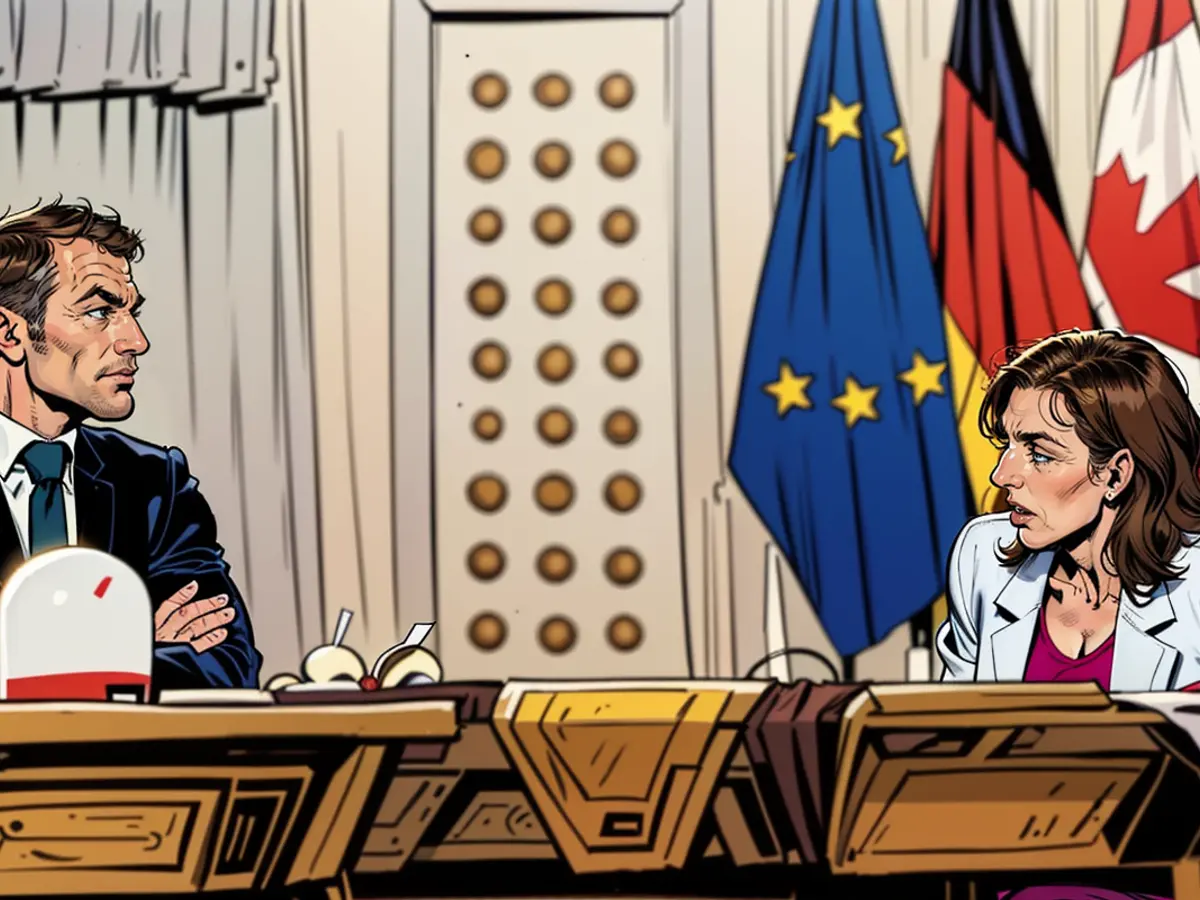Italy thwarts G7 consensus on reproductive autonomy
At this year's G7 summit, the top seven industrial countries failed to reaffirm their commitment to upholding abortion rights. This change is a result of Italian leader Giorgia Meloni inviting the Pope, who is strongly against abortion, to attend the meeting.
In the draft declaration for the summit, the focus shifts from emphasizing the importance of abortion rights to simply mentioning that women should have access to appropriate healthcare services. The more general term "sexual and reproductive health and rights" (SRHR) will be used instead of directly addressing abortion. This marks a significant departure from the meeting in Japan last year, where the leaders of the G7 countries issued a clear statement on abortion. That declaration stated, "We reaffirm unlimited support for the realization of comprehensive sexual and reproductive health and related rights for all people, including access to safe and legal abortion and post-abortion care."
By emphasizing sexual and reproductive health and rights in the current draft, the statement shifts the focus away from abortion rights to broader concerns.
Macron's concerns
French President Emmanuel Macron voiced his disappointment over this change on the sidelines of the summit. He argued that everyone should support gender equality and the rights of women and girls. However, he acknowledged that not all political views agree with this perspective. He also highlighted that France has enshrined the right to abortion in its constitution.
Meloni responded by accusing Macron of using the G7 summit to campaign against her policies. She maintained that the goal is to avoid unnecessary repetitions, and referred to the reiteration of G7 principles in the draft declaration.
Pope's presence at the G7 summit
Meloni's move to invite the Pope to the meeting sparked controversy, as it was the first time a Pope has attended. Although the Pope did not directly discuss abortion during the gathering, his presence created tension on the issue. Pope Francis, who commands over 1.3 billion Catholics as the head of the Church, contributed to discussions on Artificial Intelligence during a roundtable. In the past, he has been vocal in his opposition to abortion.
When it comes to the matter of reproductive rights, positions within the EU vary widely. A high-ranking EU official underlined Macron's stance that the EU had tried to defend the result of the meeting in Japan during negotiations. However, it was not possible to reach an agreement. This is a reflection of the contrasting opinions within the group of leading democratic industrial nations.
The inclusion of the Pope at the convention has added another layer of complexity to the debate on reproductive rights. Given the Pope's firm stance against abortion, his presence demonstrates the ongoing divisions within the G7 on this topic. The issue carries significant emotional weight, as it involves the powers granted to a woman over her body and the right to choose.
Moving forward, other countries will be watching to see how this dispute plays out and how the G7 will continue to approach this contentious issue. It is clear that the topic of abortion remains a contentious issue, and coalitions and alliances between member states remain fluid. Political positions on this topic are shifting, with efforts to balance sovereignty and respect for national positions with the need to rally in support of abortion rights for all people. This creates challenging discussions regarding where to draw the line between respecting national autonomy and standing up for human rights.
Read also:
The absence of a reaffirmation on abortion rights in this year's G7 summit consensus can be attributed to Italian leader Giorgia Meloni inviting Pope Francis, who is against abortion, to the meeting. Despite the shift in focus from abortion rights to broader healthcare services, French President Emmanuel Macron expressed his concerns about the change, citing the importance of gender equality and women's rights.








